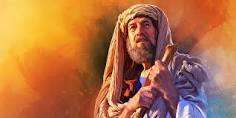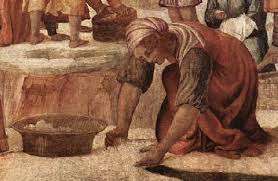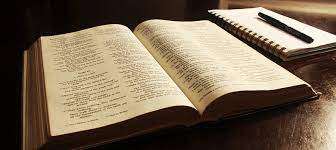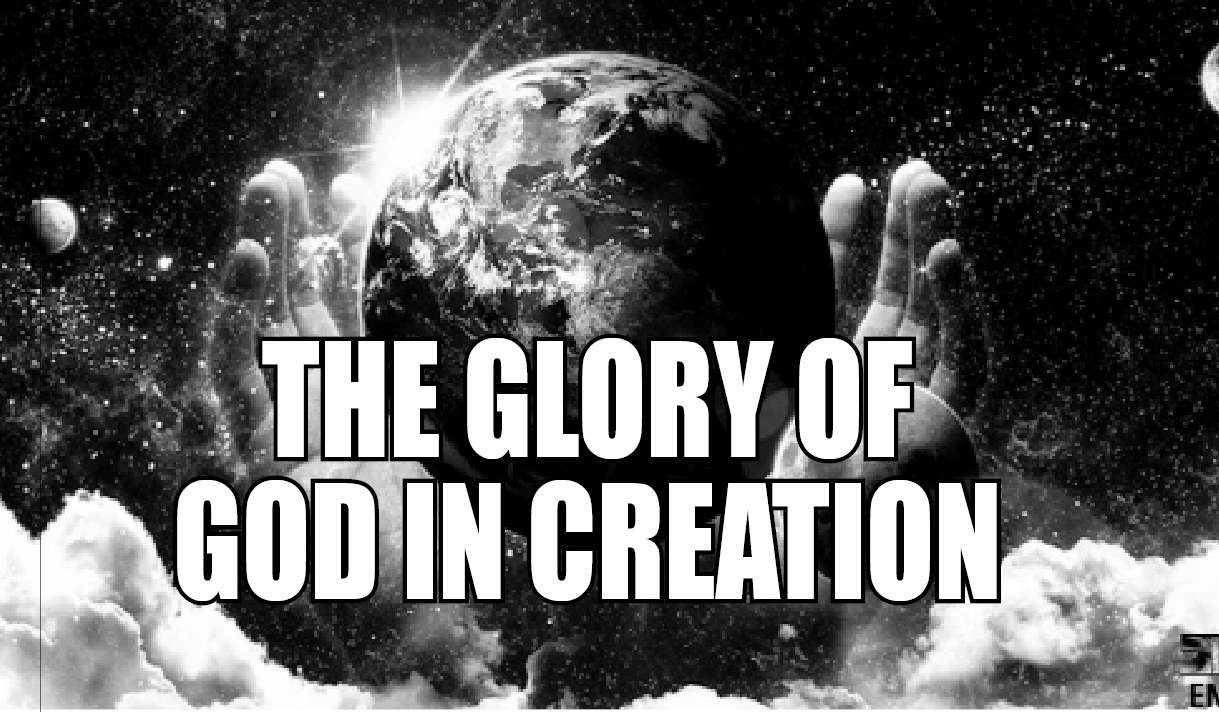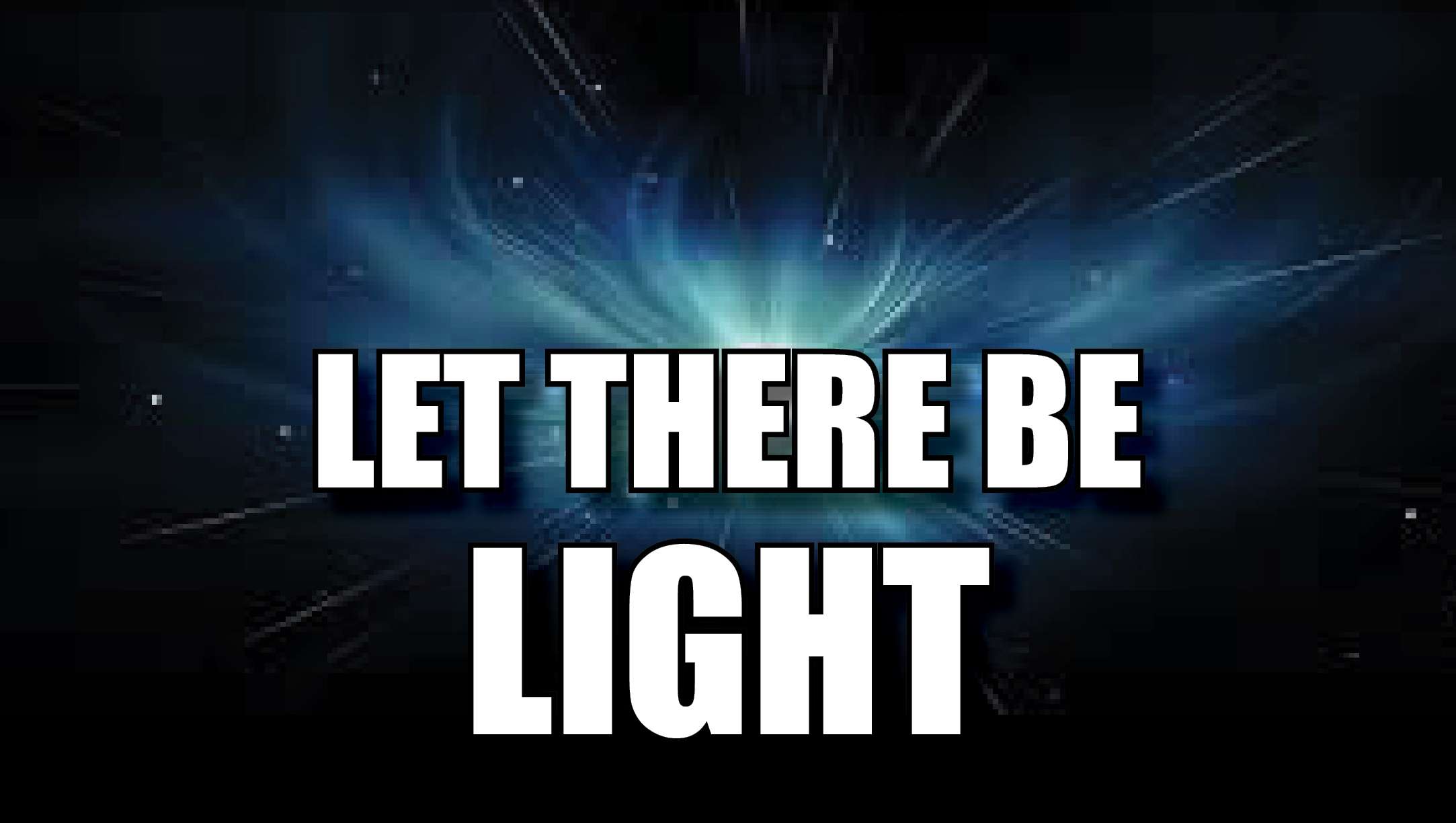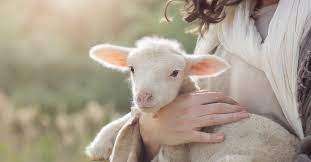

Shepherd imagery in the Old Testament
Dr. K. G. Jose
Ancient West Asian Background
hepherding is one of the oldest occupations and still is to a certain extent, a very common occupation for those in the Middle East. Thus, it is not surprising that the care of a shepherd and his relationship with his flock was a common imagery in the ancient West Asia for the leadership of people, especially kingship. In the Bible, civil and religious leaders are called shepherds, and the imagery is connected to kingship especially with David (1 Kg 22:7). God is called a shepherd (Gen 48:15), and elements from a shepherd’s life occur a number of times to describe God’s activity (Pss 31:3). Across the entire Bible God calls Himself as the Shepherd of His people.
King Hammurabi of Babylon called himself a shepherd, and Homer regularly styles the Greek chiefs as shepherds of their people. In fact, history has shown, “from ancient antiquity rulers were described as demonstrating their legitimacy to rule by their ability to ‘pasture’ their people.” This makes sense them of verses like those found in Jer. 49:19 and 50:44, where God asks, “who is the shepherd who can stand against me?” In this connection, the royal staff, or scepter, a common accessory for kings in the Ancient Near East, was itself a form of shepherd’s rod.
Life of The Patriarchs
The Patriarchs were all shepherds, as was Moses and of course David. The terrain and geography of the area lend itself to the raising of both sheep and goats, but in particular sheep. There is scarcity of grass and less than abundant sources of water. Sheep are moved from one area to another with relative ease and require less water than other domestic animals. The dryness of the land made it necessary during the rainless summer to stay for months at a time in isolated areas from the owner’s residence.
In Genesis 48:15, as Jacob, on his deathbed summarized his life, he declared that God had been his “shepherd all of his life to this day.” What does it mean for God to be your shepherd? It means… to walk before God. The same way that Abraham and Isaac walked before God. In Revelation 7:17, when the saints who come out of the tribulation are brought before God, John brings together two of the most striking images of the scripture by stating, "for the Lamb in the center of the throne shall be their shepherd and shall guide them to springs of the water of life; and God shall wipe every tear from their eye.”
The Lifestyle of Shepherds
Shepherds commonly used long poles such as these to poke around crevices in caves to scare out scorpions and snakes. The rod, which was more of a club, was use to ward off wild animals and robbers. The staff was used to protect from scorpions and snakes. As a result, the sheep were safe, even walking through the valley of the Shadow of Death--literally the valley of deepest darkness. It came to be a symbol of protection, power and authority. God as the ultimate shepherd of His people takes this concept to a level not present in other cultures.
God chose this motif at least in part because His people are so apt to act like sheep. Scriptures like Isa. 53:6 remind us over and over again that God’s people and sheep are very much alike and the connection is most often negative. Sheep are not only dependent creatures; singularly unintelligent, prone to wandering and unable to find their way to a shepherd even when it is in sight. The analogy is fitting. It is clear, because of our helplessness and our tendency to wander and get lost we are in need of a Good Shepherd.
Nathan’s story in 2 Samuel12, we see the picture of the sheep, sometimes given the status of pet. In fact, so close were the shepherd with their flock that one shepherd is reported to been able to tell which lamb went with which nursing mother in the dark by merely feeling it’s head! The shepherd is also involved enough with his flock that they know his voice. In this day multiple flocks would sometimes be brought into the sheepfold for the night. The next day each shepherd in turn would stand in the middle of the fold and call his own out. It was not a matter of the exact call or words used, but the sheep responded primarily to the distinct tone of the shepherd’s voice.
The shepherd’s vocation is largely lost on us today. There is an intimacy in shepherding. Shepherds know their sheep because they are with them all day, every day, for weeks on end, in solitary places. They learn the actions, habits and preferences of their flock through constant oversight. They protect, feed, direct and correct the sheep continually, developing a bond, perhaps even a love of their flock.
The failure of Israel’s shepherds-
The focus of a good shepherd was to be on his flock--their provision, guidance and safety. The epitome of the bad shepherds, in Ezekiel shows Israel’s leaders of his day (34:1-6), sketches out in vivid terms, what it looked like when leaders failed to provide this care. These leaders were slaughtering their sheep for their own gain rather than feeding them. Rather than caring for the flock, they treated them with “force and severity”. (vs.4) Perhaps Ezekiel’s greatest rebuke was for their lack of guidance. Three times he mentions that the sheep are scattered. They were lost, became prey for every beast and had no one to search or seek them. Jeremiah, in his judgment of the leaders of Israel took this notion one step further, connecting a lack of spirituality on the leaders’ part with the scattering of the sheep. In Jer. 10:21 he states, no doubt in reference to the captivity of Judah, “For the shepherds have become stupid, and have not sought the Lord; Therefore they have not prospered, and all their flock is scattered.”
Shepherd in the Psalms.
The popular lines of Psalm 23 were penned by David, not a theoretician when it came to sheep and their welfare, but a proven shepherd. What David understood and experienced was the reality of knowing a loving, attentive, present, powerful and purposeful guide for his life. Our greatest assurance and soul-filling hope is that the LORD, Yahweh, is our shepherd. It is because of this simple, yet endlessly profound reality that we can begin to understand our place in the world and the joy that is ours forever under His care.
We could summarize the life of a shepherd as one of constant care. Even if a shepherd is able to drive off these dangerous predators, the flock will most likely scatter and need to be gathered, often from various nooks and crannies. All of these elements show how close of a bond there was between a shepherd and his sheep. He was their constant companion and would need to know them individually and intimately to properly care for them. The sheep would learn to trust their shepherd, follow his leading, and listen to his voice. Sheep are helpless without the guidance of a shepherd. They are a target of prey, weak, and dumb (seriously, sheep’s brain is tiny). Psalm 95:7a says, “For He is our God, And we are the people of His pasture and the sheep of His hand.”
Yahweh the Shepherd
At the outset, it is to be noted that the term shepherd is never used for the ruling king in Israel. God is presented as the Messianic shepherd; a shepherd who suffers death according to the will of the Lord and thereby brings about the salvation. In one passage Yahweh is called "the true pasture" (Jer 50:7). The Hebrew word nāweh, which means "pasture, abode of a shepherd, habitation ... where the herd lies down, a place of safety and protection. Israel had strayed like lost sheep and had forgotten their own resting place, Yahweh, their true pasture.
Firstly, the Lord is the shepherd who brought Israel His flock up out of the land of Egypt and led them through the wilderness Ps 78:52. The second major event is the exile in which God is described as the shepherd as described in Psalm 80. In Psalm 78:70-72 we read, “ He also chose Davis His servant, And took him from the sheepfolds; In verse 2 of Psalms 23 we are told He causes the sheep to lie down in green pastures. This indicates a place to rest but also a supply of food on hand. Also present is water that is welcoming in addition to refreshing. This met a critical need due to the shortage of water in the region as already pointed out. Later in the Psalm David conveys the idea of abundant provision in yet another way. He speaks of a table being set, his cup overflowing, and his head being anointed with oil. Bedouin hospitality often called for just such a lavish response to a guest, and the anointing with oil was a symbol of lavish generosity and goodness on behalf of a hostess for their guest. (Eccl 9:8)
The Period of Exile
OT makes reference to a shepherd who is to come and who is to play a significant role in the history of Israel. In the case of Isaiah 44:28 the shepherd is actually named--Cyrus. God of Israel has chosen the Persian king Cyrus as the instrument for building Jerusalem and the temple. Most passages referring to the coming shepherd are connected with the ultimate restoration of Israel which will take place at Christ’s Second Coming. One of the most striking of these predictions is Isaiah 40:11. In the midst of the warning about the coming hardship of captivity, Isaiah lifts the eyes of his countrymen to a time when God will fully restore all things. The global scope of the language, “Let every valley be lifted up…that the glory of the Lord will be revealed” argues for a time frame of the Second Coming.
In Jeremiah 31:10-17 we find an emphasis not on a future Messiah coming as shepherd, but on God’s omniscience over the events in Israel’s history. Jeremiah declares, “Hear the word of the Lord, O nations. And declare in the coastlands afar off, and say, ‘He who scattered Israel will gather him, And keep him as a shepherd keeps his flock.’” In Micah 5:2-5a we find another reference to the future shepherd of Israel.
In Is.40:11, again in the context of return from exile, he pictures the Shepherd’s protection by pointing out his care for the most helpless of the flock. The newborn and the nursing mothers with young are the members most vulnerable to attack are properly taken care of. What does it mean for God’s “recompense” to be “before Him?” It means that His people—His flock—are His treasure. The Lord will regather His scattered flock. The mighty Shepherd King with His rod—the Lord God Himself—will lead His people home.
Perhaps the most interesting of the OT prophecies concerning the shepherd of the future is in Ezekiel 34. After Ezekiel extensively rebukes the shepherds of Israel for their abysmal failure to lead the people as God would have them, (vs.1-10), God interjects an unmistakable ray of hope. He says, (vs.11) “I myself will search for my sheep and seek them out.” He then goes on in beautiful imagery to paint the picture of the Good Shepherd searching for and restoring the lost and scattered sheep. He will return them to the land and feed them on the mountains of Israel. (vs.13-14) He will bind up the broken and strengthen the sick, but at the same time will come with judgment. God uses the prophet to chastise the leaders of the nation for failing to lead the people rightly in their walk with Jehovah God. He suggests that they should have been shepherds, caring for God's flock, but instead had been feeding upon them for their own selfish gain. Ultimately, God shares that He would be a Shepherd to Israel.
Conclusion
The imagery of a shepherd brings to mind of misty green valleys, a staff, and a solitary figure, probably cloaked, bracing himself against the wind. It all sounds very romantic, vaguely positive, and certainly religious. But what, exactly, are we trying to say about God? That He keeps us safe from harmful influences — just as a shepherd keeps a lookout for predators. That He provides us with our physical needs — just as a shepherd makes sure that his flock has good land for grazing. That He wills our bodies, when sick, to repair themselves — just as a shepherd looks after the health of his flock.
To think of the LORD as a shepherd is to come to understand the intensely personal, comforting, attentive and providing nature of God’s love and care for his flock of humanity. Their point about intimacy – personal knowledge – is also important. What encourages and comforts the sheep in the fearful darkness of this mountain canyon is the sight of the shepherd's rod and staff. Your Shepherd is committed to delivering you from your enemies and has indeed laid down his life for you in the battle for your soul.


